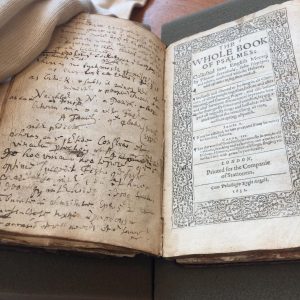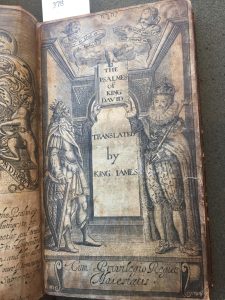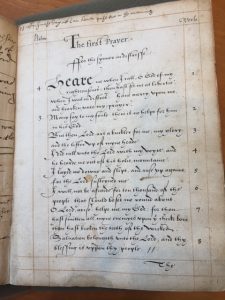A teacher’s default title is a ‘Mr.’ or ‘Ms..’ A special few, though, earn the title of ‘Dr..’ While this may seem like a slight title change, the work that goes into getting it is anything but.
The title of a Dr. is earned through graduate school, with the final award being a doctorate. Graduate school is often taken after a standard four-year college and can take many forms.

Typically taking between four and six years, graduate school culminates with a research-based, long-form academic paper known as a dissertation. A dissertation allows students to dig deep into a passion related to their future career, often delving into an area with minimal former research.
For English teacher Anne Boemler, this came in the form of the Protest Reformation in 16th century England, a time of both increasing literacy and spread of Christianity: “For the first time, kind of ordinary, lay people were encouraged to read the Bible,” Boemler said, “But the problem is that the Bible is a really weird book made out of tons of different genres… so the problem the Reformers faced was how do we teach these ordinary people without specialized training to tackle this really challenging reading process?”.

Boemler’s answer to the Reformers’ struggle was a long-time passion: poetry. Transforming the messages of the Bible into poetry would help untangle the book’s meaning, “Maybe people don’t know how to read a book like Genesis, but if you give them Genesis in the form of an epic poem, they know what to do because they’ve been hearing poetry their whole lives,” Boemler said.
Boemler had felt drawn to the topic since high school. “My favorite poet in high school ended up being someone I wrote my dissertation on,” she said, “When I first discovered his poetry, it was a feeling of ‘oh, I didn’t know other people felt this way,’ I could have said this.”
Writing a dissertation can be long and grueling; Boemler’s program specifically took six years to complete, consisting of two years of coursework that would accompany her writing process. Her most considerable motivation was the opportunity to do research: “One of the summers, I got a grant to go to the rare books library at Yale, and I spent the summer going down to read handwritten manuscripts that, as far as I could tell, no one had written about before.”

Boemler was particularly excited about the relevancy of these manuscripts: “I found a retelling of the story of King David and Bathsheba in verse… Bathsheba is seduced and sexually assaulted by a much more powerful man,” she said, “it was like straight from the pages of [MeToo movement].”
While Boemler is highly passionate about her PhD work, she admits that the experience ultimately had some drawbacks. “The problem with graduate work in English is that you think you’re going to become a professor at a college or university, and there just aren’t enough jobs for everyone,” Boemler said. To anyone who is interested in pursuing their own doctorate, Boemler offers some advice: “If you want to write a dissertation because you love the prospect of becoming a world expert on that topic, go for it,” she said, “just consider ways of scratching that intellectual curiosity…that don’t involve getting your PhD.”
Still, Boemler would not trade away her PhD and utilizes her graduate school experience in teaching. In her Shakespeare class in the spring, Boemler plans to incorporate some of the female poets she discovered in her research into the curriculum. “Shakespeare is such a monolith. He’s also so male, and I want to bring in some of the really cool female authors I found in my dissertation work,” she said.
Ultimately, Boemler wants her students to be as passionate about something the same way she did when writing her dissertation: “At the most basic, what I want for my students is to have that aha moment…to have the experience of having an idea that is just their own, that no one else has thought about before, and to be excited by that.”
![]()
Linked here
Updated on 12/2: Featured image cropped, headline revised and teaser edited to clarify that this is a multi-story series.